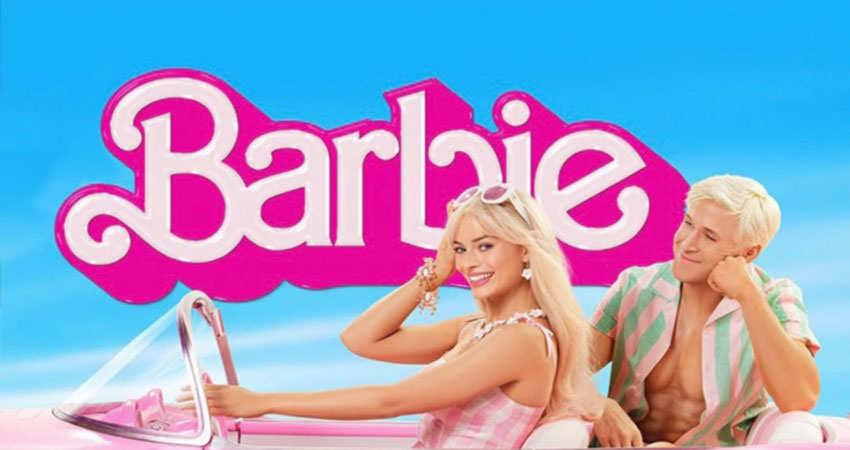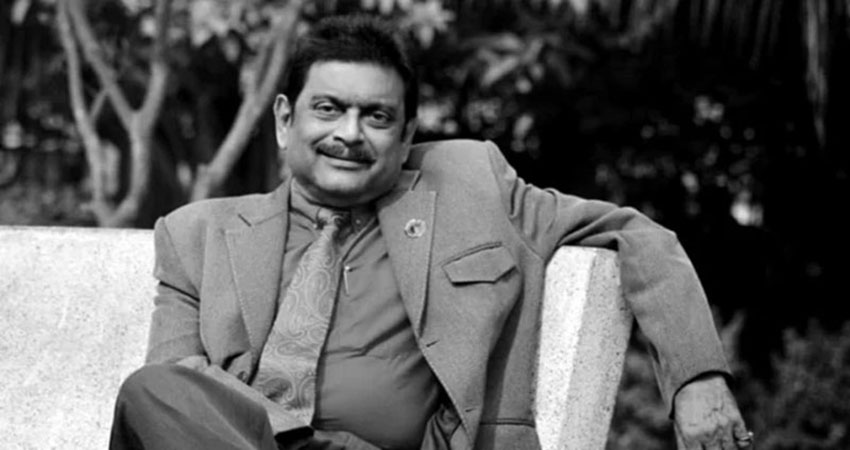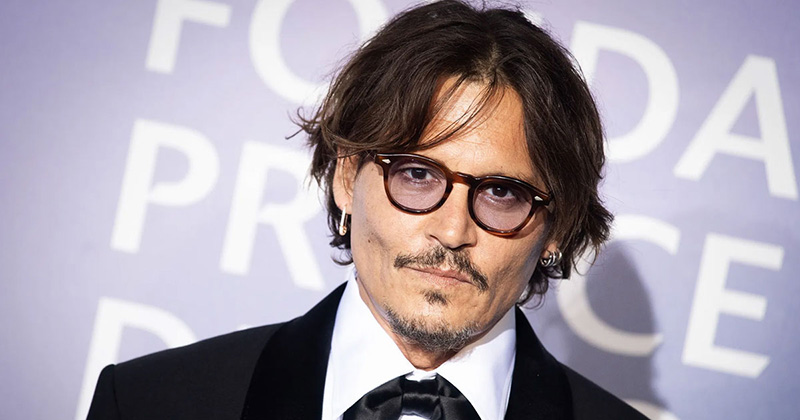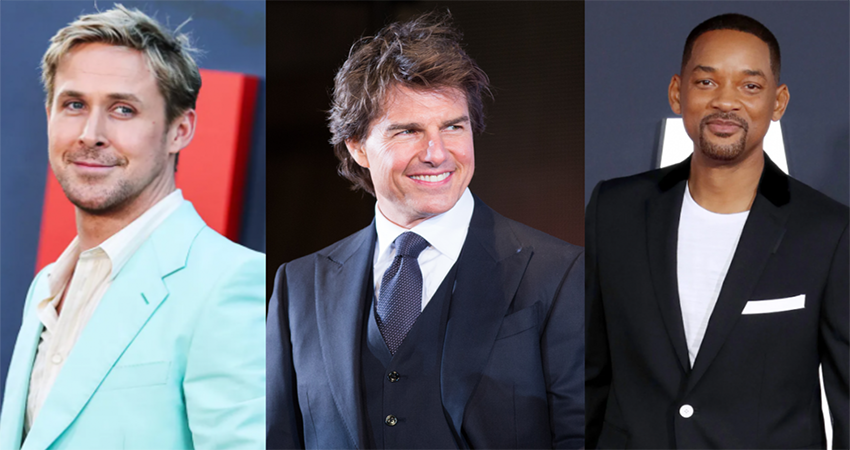Throughout childhood, many of us played with Mattel's iconic doll, Barbie. Our dolls had tea parties, picnics, dates with Kens, and moments singing, "Come on Barbie, let's go party."
For nearly six decades, children across the globe were transfixed by this Barbie universe, where we "brushed their hair" and "undressed them anywhere".
On Friday, when director Greta Gerwig paid tribute to this iconic figure by bringing her to life in a captivating live-action movie, we were all aboard the nostalgia trip, journeying into the heart of the Barbie dreamland, a place made of plastic and which was truly fantastic!
Fantastic, at least on the surface.
The Barbie movie doesn't pretend to be what it's not; in fact, it emphasises – sometimes too much – its key nature: a feminist fable, wrapped in a pretty pink package, with gritty undertones. It's a treatise on societal pressures and expectations women across the world are burdened with.
It's also a commentary on how all that we see is not real, especially telling in a world ruled by social media depictions of reality.
The emotional connection between Barbie and a young girl forms the heart of the film.
Gerwig's exploration of the pressure society places on women to embody idealised versions of themselves hits home.
Additionally, it explores the boys' behaviour, resembling Ken, as they constantly seek validation from their crushes.
Natasha Walter's quote, "In a world in which women are told they can be anything, too often they still have to be dolls as well," resonates throughout the film, bringing forth the idea that we should encourage girls to be authentic and true to themselves rather than conforming to unrealistic standards.
And it's not just in the direction or story-telling. It's also what Gerwig personifies.
One of the talking points of the movie is a simple scene where Barbie (Margot Robbie) meets an elderly woman on a bench and tells her she's beautiful.
The scene doesn't add to the story, it's not a cliff-hanger needing to be progressed. But for Gerwig, it's a moment with a powerful commentary and background to it.
The studio executives wanted the scene to be cut. But Gerwig, according to numerous interviews, stuck to her guns.
"If I cut that scene, I don't know why I'm making this movie," Gerwig told The New York Times. "If I don't have that scene, I don't know what it is or what I've done."
Gerwig strived to be authentic throughout the movie and it shows.
Barbie and Ken's journey to the real world
Over the years Mattel has barbified every profession, like doctors, teachers, nurses and more.
In the movie, Margot Robbie plays the most iconic Barbie of them all: "the stereotypical Barbie", which is considered to be the embodiment of perfection.
This Barbie tiptoes around her pink flamingo-coloured dreamhouse and floats right out of it into her pink Corvette.
She goes and meets her friends Ken, Allan, Midge and Skipper.
Soon Barbie's perfect dream life starts turning into her worst nightmare as she "malfunctions" or demonstrates human-like qualities.
One fine day, Barbie wakes up and her toes suddenly turn flat; she doesn't float. She falls out of her house and to top it off, she also gains cellulite.
At one big party, an everyday aspect of Barbieland life, she asks, as her peers stares aghast, what it is like to die.
As this disturbance of sorts plays out, Barbie goes to meet the Weird Barbie (played by Kate McKinnon), who suggests that she needs to go to the real world to fix herself.
Together, Barbie and Ken (played by Ryan Gosling), embark upon the journey to the real world and both of them end up having revelations of their own.
Barbie was soon struck by reality. All her Barbieland beliefs - such as, that they are inspirational to all womankind - crumbles in the real world.
It dawns upon her that instead of being a symbol of power, they are nothing but a capitalistic commodity that paints the wrong impression of women.
Her journey is wholesome to watch and is a treat to the eyes indeed, but it is moving at the same time.
Margot Robbie adapts to the character perfectly.
But what can be looked at as a feminist movie also puts the story of Ken in the foreground.
One of the most interesting parts of the movie is Ken's character development. From a dumb blond who strives for Barbie's validation to becoming a poster boy for toxic masculinity, later finally coming around and discovering his separate identity as " Ken" – Gosling's roller-coaster of a journey is also an important aspect of the story.
His realisation of self-discovery, away from the confines of stereotypes, adds a commendable layer of depth and progressive thinking.
Ryan Gosling's portrayal of Ken is one of the highlights of the entire movie and he passes with flying colours by being a genius comedic gem.
Satire done right?
Even though Gerwig has put critical social issues to the big screen, it seems at times too forced and can even seem like a Ted X lecture in some scenes.
However, it's important to remember that its target audience is mostly teenagers with impressionable minds. So, perhaps it serves the purpose.
Even though the movie tells the story of the brand Mattel, its script is also daring as it shows that the brand created unrealistic standards through these dolls.
It also portrays the brand's CEO as the ideal candidate of patriarchy, who wants to put the dolls in boxes.
One of the most compelling aspects of the movie would be Gerwig's tackling of the complicated legacy of the doll itself. She critiques it without destroying our beautiful memories.
The movie busts common myths about Barbie and combines nostalgia, feminist undertones, and thought-provoking commentary, which makes it a must-watch for all ages.
Barbie Review: Life in plastic is not fantastic



















